English Assignment: Literary Devices and Themes in 'You Are Ugly Too'
VerifiedAdded on 2020/03/16
|5
|1083
|314
Essay
AI Summary
This essay provides an in-depth analysis of Lorrie Moore's short story, "You Are Ugly Too." It explores the central theme of isolation, examining how the protagonist, Zoe Hendricks, struggles to find meaningful connections and experiences existential crises. The essay delves into the narrative form, highlighting the use of a third-person perspective to maintain reliability and add a touch of humor and irony. It further discusses literary devices such as imagery and metaphor, illustrating how these elements contribute to the story's portrayal of Zoe's morbid existence and psychological pain. The analysis also addresses the use of irony and sarcasm, and how they underscore the protagonist's alienation and bitterness. The story's setting in Paris, Illinois, and the Midwest is examined as a microcosm where Zoe's identity and connections are challenged. The essay also makes references to the author's style and offers a comprehensive overview of the story's key elements, including a discussion of the title's significance.
1 out of 5
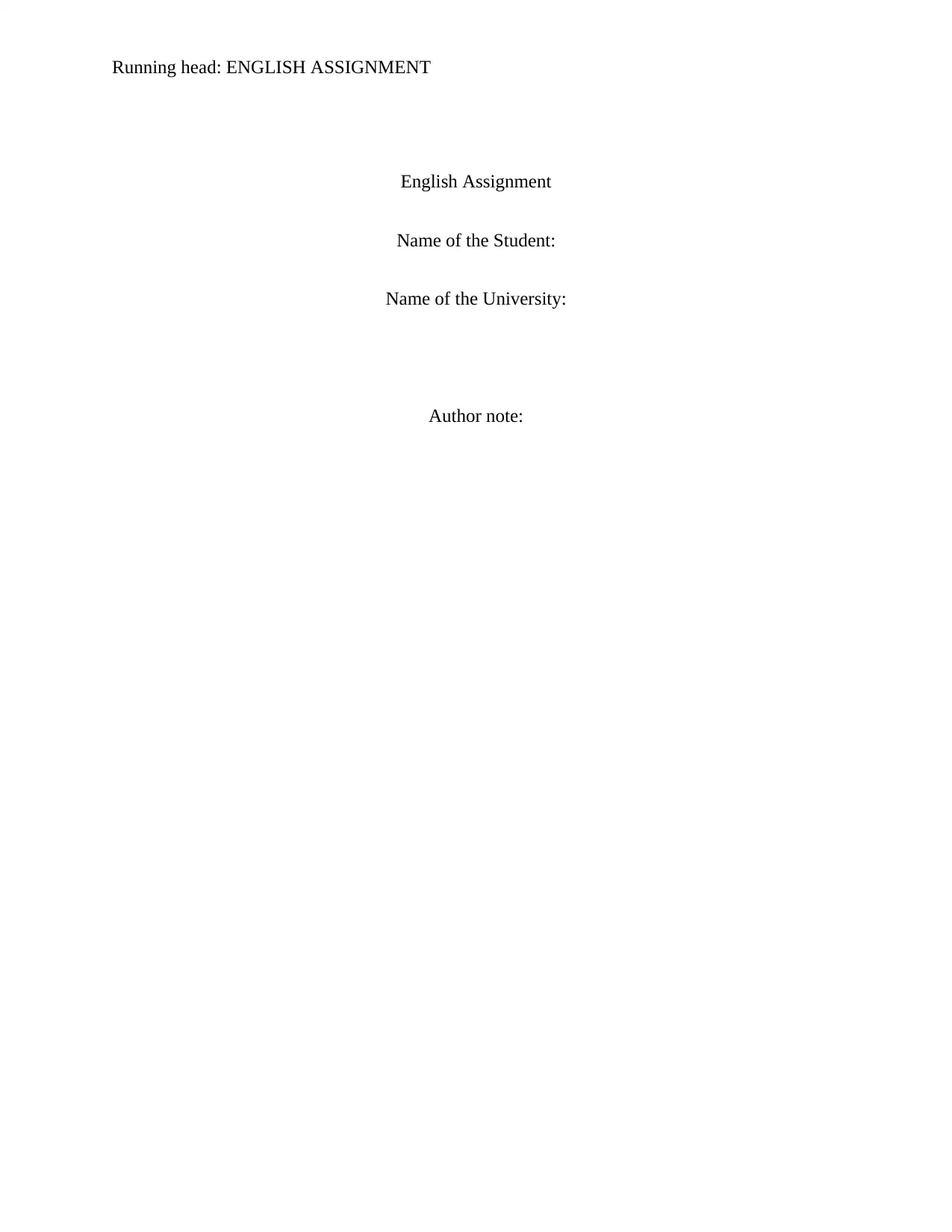
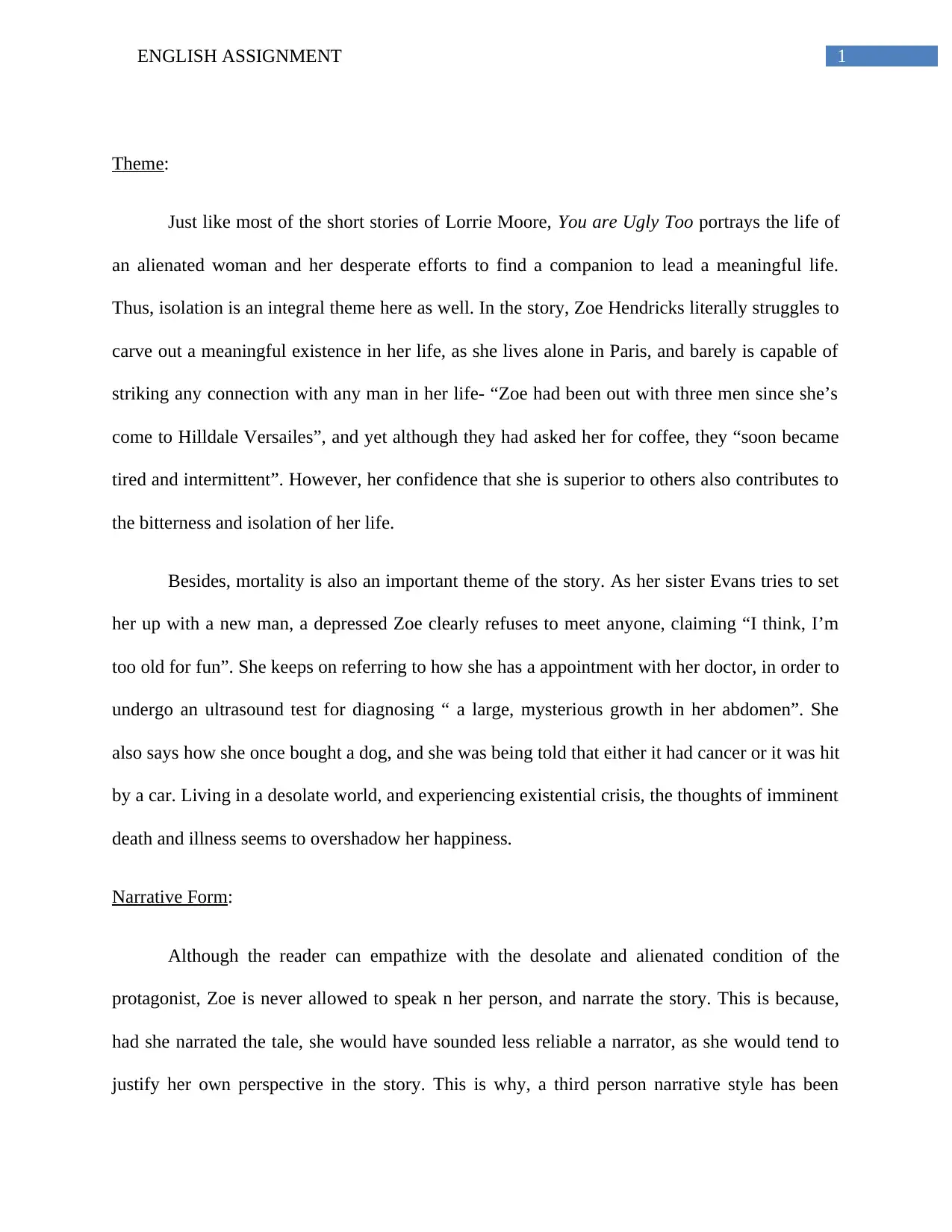
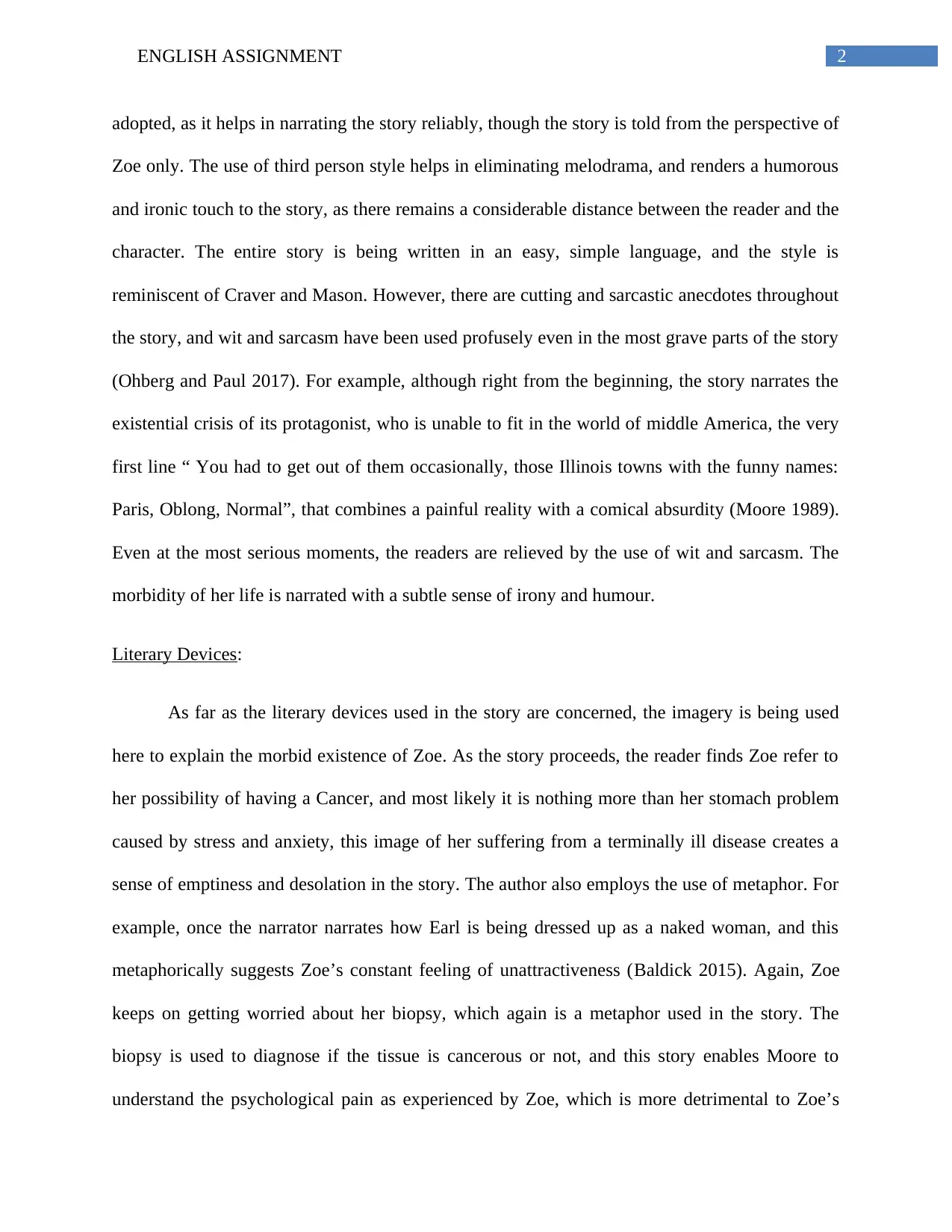

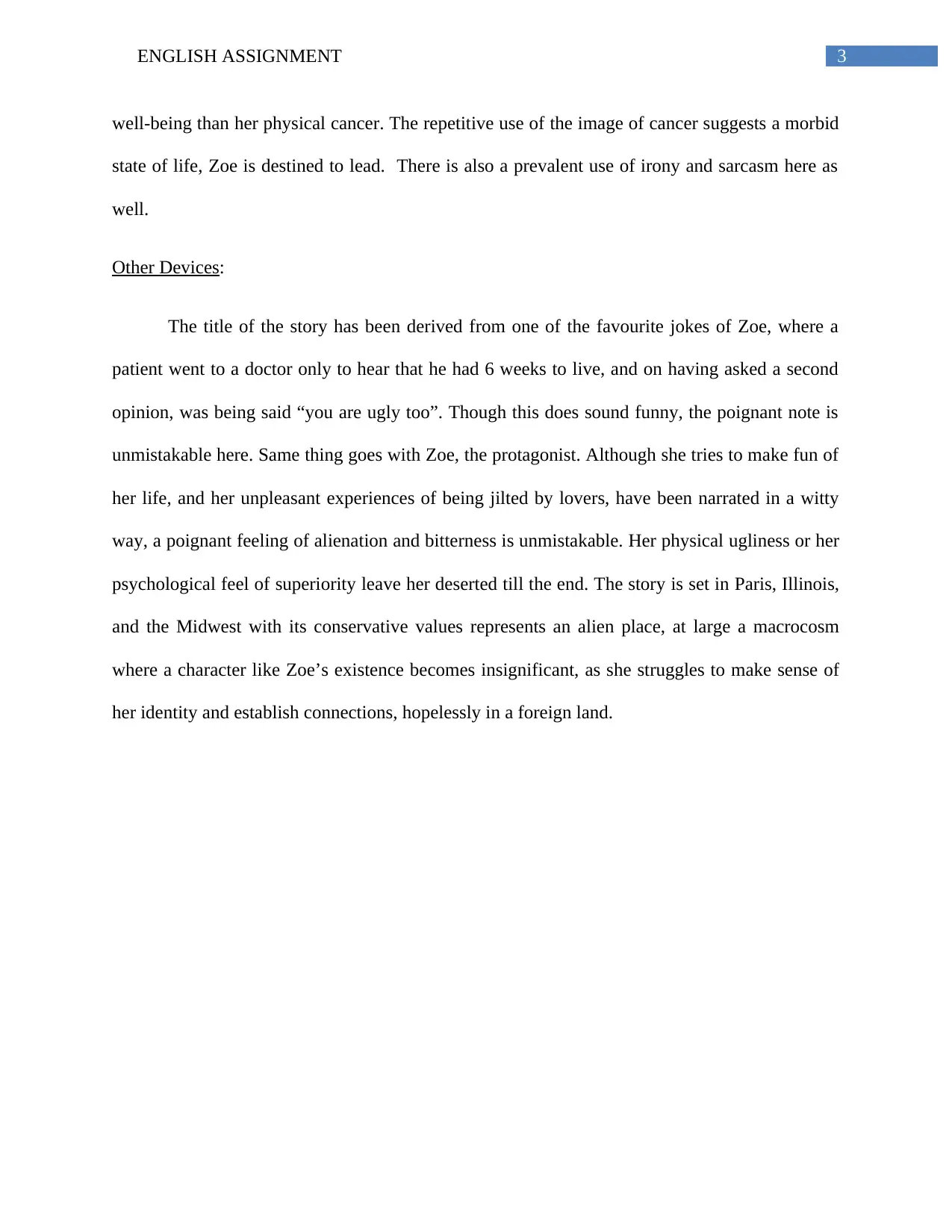
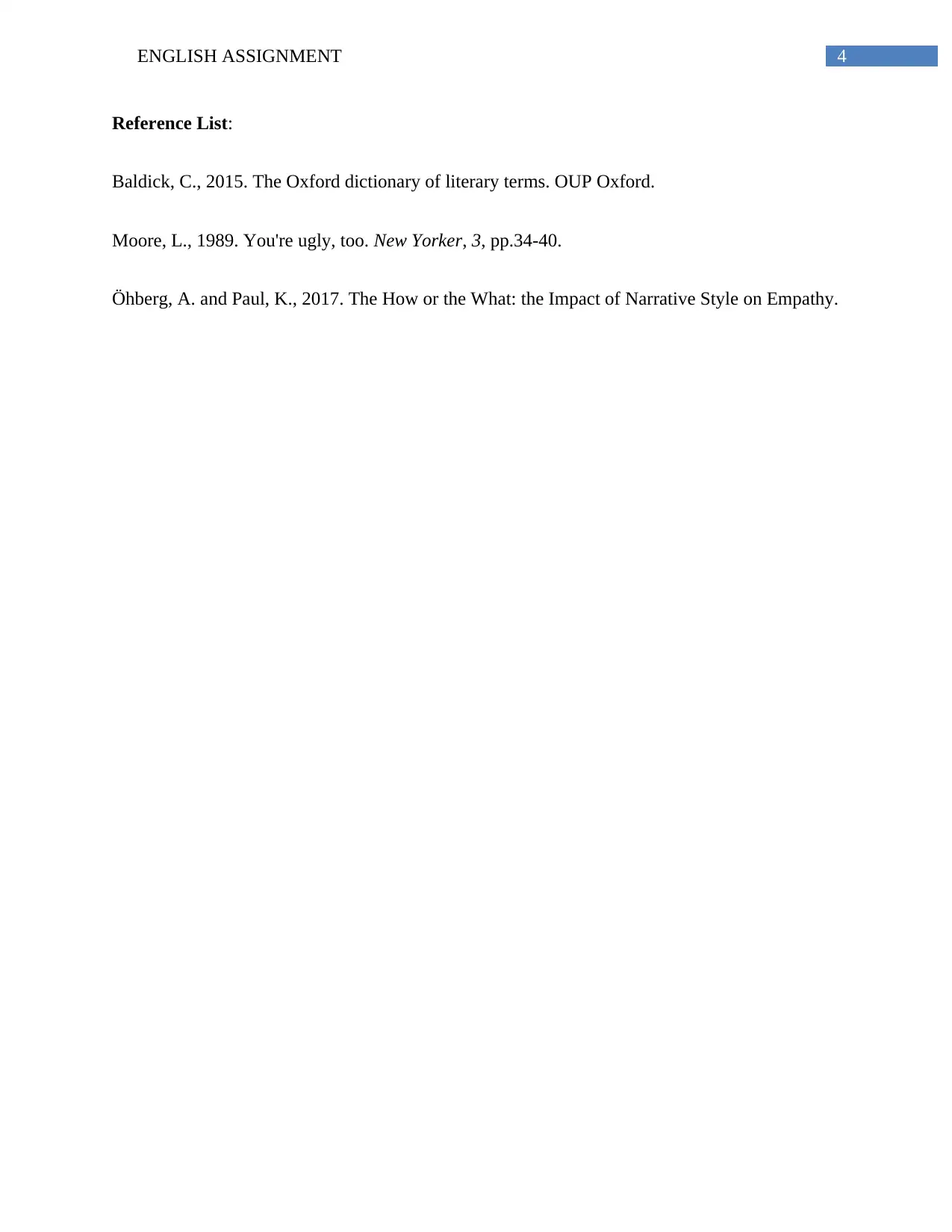


![[object Object]](/_next/static/media/star-bottom.7253800d.svg)